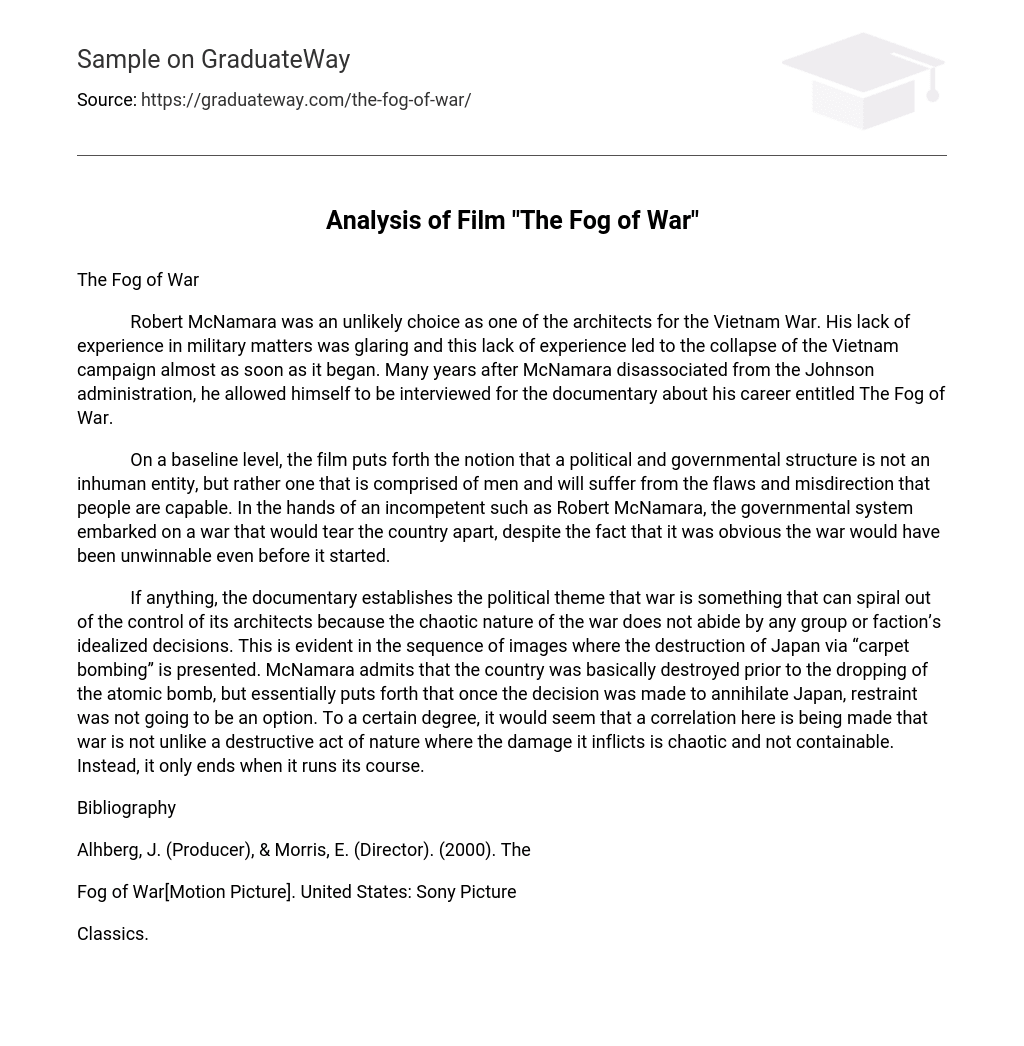The Fog of War
Robert McNamara was an unlikely choice as one of the architects for the Vietnam War. His lack of experience in military matters was glaring and this lack of experience led to the collapse of the Vietnam campaign almost as soon as it began. Many years after McNamara disassociated from the Johnson administration, he allowed himself to be interviewed for the documentary about his career entitled The Fog of War.
On a baseline level, the film puts forth the notion that a political and governmental structure is not an inhuman entity, but rather one that is comprised of men and will suffer from the flaws and misdirection that people are capable. In the hands of an incompetent such as Robert McNamara, the governmental system embarked on a war that would tear the country apart, despite the fact that it was obvious the war would have been unwinnable even before it started.
If anything, the documentary establishes the political theme that war is something that can spiral out of the control of its architects because the chaotic nature of the war does not abide by any group or faction’s idealized decisions. This is evident in the sequence of images where the destruction of Japan via “carpet bombing” is presented. McNamara admits that the country was basically destroyed prior to the dropping of the atomic bomb, but essentially puts forth that once the decision was made to annihilate Japan, restraint was not going to be an option. To a certain degree, it would seem that a correlation here is being made that war is not unlike a destructive act of nature where the damage it inflicts is chaotic and not containable. Instead, it only ends when it runs its course.
Bibliography
Alhberg, J. (Producer), & Morris, E. (Director). (2000). The
Fog of War[Motion Picture]. United States: Sony Picture
Classics.





